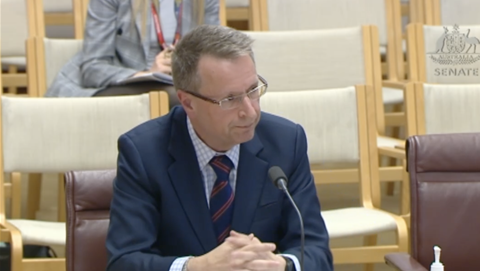Toll Government and Defence is moving into the second and final phase of modernising and “fortifying” its IT environment, which has seen it become one of the first local users of a sovereign cloud capability built by SAP.

The top 20 government and defence contractor’s shift into SAP sovereign cloud, a hardened version of its enterprise resource planning (ERP), HR and cloud services, was revealed late last month.
The context for the move, and where it fits in the organisation’s broader IT strategy, has come out since then in separate presentations at two recent summits - IBM Think on Tour and SAP NOW ANZ.
Government and Defence is the part of Toll that deals with medical air evacuations, remote airport management, vaccine distribution and technology and other services provision to federal departments and agencies such as Defence and Australian Border Force.
Toll Government and Defence president Perry Singh told the IBM summit that the Toll business “embarked on a two-pronged strategy to modernise and fortify” its operations, in part to meet “heightened security posture” demands from its government and regulated customers.
General manager of finance and commercial Dominic Vigar told the SAP summit that the modernisation and fortification strategy was developed around two-and-a-half years ago.
“It looked at not only what our current system and network landscape was but how we move to where we need to be to service our customers and also take on the new work that’s coming through the pipeline with the government as well,” Vigar said.
“It was pretty clear from that that we needed to enhance our security across the whole environment, not just for the financial transactional system but at the heart of our choice was, we needed an ERP really, and looking through the various opportunities we very quickly landed on SAP, especially once we understood about sovereign cloud.”
Head of IT Ran Bhaskar told the same SAP conference that it was envisioned from the outset that Toll would use more cloud services through the modernisation.
Running its SAP S/4 HANA ERP on sovereign cloud, along with other SAP services, meant Toll could effectively outsource the development of controls needed to meet Protective Security Policy Framework (PSPF) requirements for its government customers, and emerging requirements under the Security of Critical Infrastructure or SoCI laws.
“We were really thrilled to understand that there was a product that SAP was working on or planning to implement called sovereign cloud,” Bhaskar said.
“Basically, it [took] the focus away from us having to do all the security work.
“The majority of the controls are done by SAP, and we can then focus on more of the functional side of the solution.”
Singh said the deployment part of the project is split into two phases.
“We’ve decided to go with the core financial [ERP functionality] in phase one, and then do the operating modules in phase two which are the warehouse management, transport and extended asset management systems and so forth,” he said.
IBM Consulting was brought into the project; it’s a platinum-level SAP partner for one, and Toll saw that as advantageous in sticking to schedule and budget constraints.
“We needed a very low-risk implementation,” Vigar said.
“We could not afford to fail, we could not afford to blow our budget. We needed it to go like clockwork.”
In both conference presentations, the fact the project had so far been “on time and on budget” was reinforced.
Standing up phase one appeared to have been completed inside of eight months; Toll put the truncated timeframe down to several factors, including IBM’s involvement in exploration and design phases, and an aversion in the program to almost any customisation.
“We’ve allowed Toll to follow SAP processes rather than customising SAP processes to us,” Singh said.
Vigar credited Toll’s program management capabilities for keeping the implementation relatively ‘vanilla’.
“We’re not special in Toll,” he said. “We do a lot of interesting things, but the standard processes that support the business are pretty standard at the end of the day.
“So from that perspective, we adopted almost all of the standard processes [in SAP]. We didn’t customise, we had a few integrations but not many, so it’s a very low-risk implementation.”
Singh said the deployment had “gone really well” so far and had “had a big impact on the Toll Group”.
“It’s boosted our confidence to be bold in our digital journey as well,” he said.
Bhaskar noted that more of SAP’s offerings could be added to sovereign cloud over time, depending on Toll’s needs as one of the first customers.
He said the “core of S/4 is in there, a large portion of BTP [Business Technology Platform, which is the new name for SAP cloud services] and SAP SuccessFactors is in” sovereign cloud already, “as customers need more functionality, SAP’s going to work with us to … enhance that platform for us.”
Vigar suggested there were “a lot of opportunities” that Toll Defence and Government saw in the BTP side.
He also said he was “really keen on SAP AI and understanding what that can unlock for us as far as efficiency in our backoffice administration.”
“That’s going to be a key enabler for Toll to differentiate ourselves and become a lower cost service partner for our customers,” he said.




.png&h=140&w=231&c=1&s=0) Tech in Gov 2024
Tech in Gov 2024
















